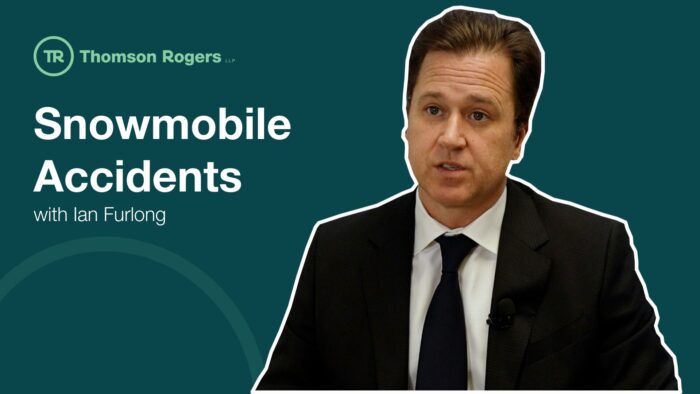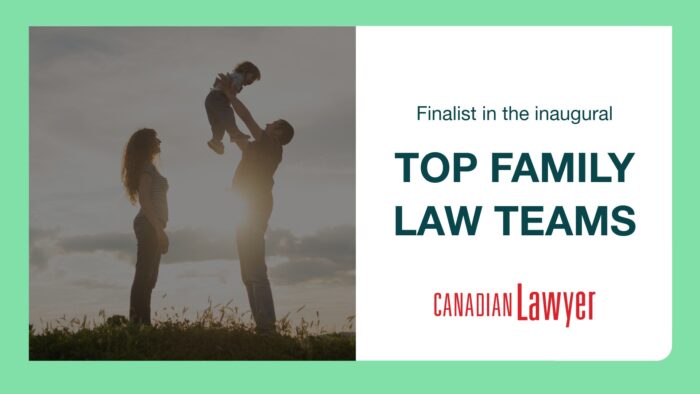LOOSE LIPS CAN SINK SHIPS: WAIVER OF PRIVILEGE
Author(s): Robert M. Ben*
November 12, 2014
Many of you provide treatment to people recovering from serious personal injuries. It goes without saying that confidential information entrusted to you by your patients within a professional relationship should be carefully guarded – confidential information should not be disclosed without the patient’s authorization, unless otherwise required by law. Unfortunately, sometimes the most routine interactions with patients can jeopardize this confidentiality. This is particularly the case for patients who are involved in legal proceedings and who may forget to heed their lawyer’s advice not to discuss the details of their lawsuit with their treatment providers. While it is certainly not a treatment provider’s responsibility to prevent such inadvertent disclosures, an awareness of the potentially harmful ramifications on a patient’s lawsuit can perhaps help preserve the patient’s legal “zone of privacy” with their lawyer.
Consider the following scenario. You are treating a patient who suffered a brain injury in an accident. She is in the midst of a lawsuit to recover compensation. During your treatment session you innocently ask your patient how things are going with her case. She tells you about a recent meeting with her lawyer where he reviewed the results of testing he arranged by a non-treating expert neuropsychologist. Your patient tells you the test results came back in the “average” range, although she considered this a decline from her “above average” cognitive abilities pre-accident. You make a brief note about this in your clinical record but otherwise don’t think much about it. Months after your session, your clinical records are produced to the defendant in the lawsuit. The defendant asks for a copy of the expert neuropsychologist’s report referred to in your notes. Although you were never provided with a copy of the expert report, the defendant brings a motion against your client to obtain a court order requiring the report be produced.
Normally, the law requires that parties to a lawsuit disclose all documents and any information that is relevant to the issues in the lawsuit as part of the truth-seeking process. The problem with the above scenario, however, is that the expert report your patient told you about was obtained by her lawyer for the purpose of assisting with the litigation. It was not a report generated in the course of your patient’s treatment. The lawyer does not want your patient’s adversary in the lawsuit to have a copy of the report or to use the report as evidence at the trial of your patient’s personal injury lawsuit.
There is nothing illegal, unethical, or improper about the lawyer wanting to withhold the expert report in this scenario. The report is privileged. Privilege is a rule of evidence and a substantive right that exempts certain documents and other communications from having to be disclosed in legal proceedings. Although the law requires fulsome disclosure of relevant documents, the law also recognizes there is an important public interest in preserving and encouraging confidentiality between a lawyer and their client. The right to consult a lawyer and confidentially obtain legal advice without fear of disclosure of those communications is recognized as essential to the proper administration of justice in our adversarial legal system.
There are two main types of privilege:
(1) lawyer-client privilege; and
(2) litigation privilege.
Lawyer-client privilege (sometimes referred to as solicitor-client privilege) protects communications between lawyers and their clients, where those communications are for the purposes of giving or receiving legal advice. The requirements of lawyer-client privilege are that:
(1) the communication is between a lawyer and his client;
(2) the communication is made in confidence; and
(3) the communication is made in the course of seeking or obtaining legal advice.
The privilege belongs to the client and not the lawyer. Unlike litigation privilege (discussed below), lawyer-client privilege is permanent and virtually inviolable. It survives even after the client’s relationship with her lawyer is at an end. It even survives the client’s death. Because the privilege belongs to the client, it generally cannot be waived by anyone other than the client. Lawyer-client privilege is justifiable because it encourages clients to make full, frank and honest disclosure of all information that a lawyer may require, in order to provide sound and helpful legal advice to a client in the course of litigation. Without the protection of privilege, clients would be reluctant to be candid with their lawyer for fear that whatever they said would be disclosed to their adversary to their detriment.
Litigation privilege is different than lawyer-client privilege in that it goes beyond mere communications between a client and her lawyer to protect from disclosure any work or documents that have been undertaken or prepared for the dominant1 purpose of anticipated or pending litigation. The purpose of litigation privilege is to provide the client and her lawyer with what the courts have called a “zone of privacy” within which the case can be prepared to the client’s best advantage. The courts recognize the importance of this “zone of privacy” because the adversarial system is based on the assumption that if each side presents its case in the strongest light, the court will be best able to determine the truth. Lawyers must be free to make the fullest investigation into a client’s case without risking disclosure of opinions, conclusions, strategies or tactics to the client’s adversary. The invasion of privacy of a lawyer’s trial preparation might well lead to the lawyer postponing this preparation until the eve of, or during the trial, so as to avoid early disclosure of potentially harmful information, which the lawyer is not necessarily obliged to disclose to his client’s adversary. This would be counter-productive to the goal of early and thorough investigation by lawyers.
In the scenario I outlined at the outset, the client’s disclosure to a treating practitioner of the existence and contents of a privileged expert report can have potentially harmful consequences on the client’s lawsuit. Privilege can be lost by what is called waiver. Generally, waiver occurs if the holder of the privilege makes a voluntary disclosure or consents to the disclosure of any material part of a privileged communication or document. Although waiver generally requires that the client be aware of the privilege and that the client demonstrates and intention to give up the benefit of the privilege, waiver can arise through careless, inadvertent or even implied disclosure of otherwise privileged information. Because lawyer-client privilege rests on a foundation of confidentiality, if a client discloses to a third party (such as a treatment provider) the substance of discussions she has had with her lawyer, this alone can amount to waiver and a loss of privilege. However, since litigation privilege rests on a different foundation (i.e., the “zone of privacy” in preparing one’s case for litigation), mere disclosure of litigation privileged information or documents will not necessarily amount to waiver. Where, as in our scenario, the patient inadvertently disclosed litigation privileged information, the courts will consider a number of factors in determining whether there has been waiver. These factors include:
- Whether the disclosure was, in fact, inadvertent;
- Whether after discovering the inadvertent disclosure an immediate attempt was made to retrieve the information or documents;
- Whether there is still a legitimate interest to be protected notwithstanding the disclosure (this will depend in large part on the identity of the person to whom the disclosure was made, i.e. whether that person should be classed as a “stranger” to the litigation); and,
- Whether maintenance of the privilege will result in unfairness or prejudice to the adversary and undermine the integrity of the administration of justice.
Going back to our scenario, it could be argued that there was no waiver of privilege. The patient disclosed only one finding in the expert report to her treatment provider. She did not provide a copy of the report itself to her treating practitioner. The treating practitioner did not appear to make any treatment decisions based on the disclosed information. There is still a legitimate interest to be protected because the report was prepared for the sole purpose of assisting the patient’s lawyer with the lawsuit and for no other purpose, i.e. the patient is still entitled to a “zone of privacy” over the report particularly if her lawyer undertakes not to rely on it or call the expert neuropsychologist as a witness at trial. Lastly, there is no prejudice of unfairness to the patient’s adversary in the lawsuit because the adversary is in no worse position than the patient in that neither will be able to rely on the neuropsychological test findings at trial.
The better practice, of course, is for lawyers to remind their clients to avoid the inadvertent disclosure of privileged information and documents in the first place. Clients, however, sometimes forget. While it is certainly not a treatment provider’s responsibility to guard against such pitfalls, an awareness of the potentially harmful ramifications on a patient’s lawsuit can help preserve the patient’s legal “zone of privacy.”
View PDF version: Accident Benefit Reporter | Vol 15, Issue 2 | November 2014
Share this





